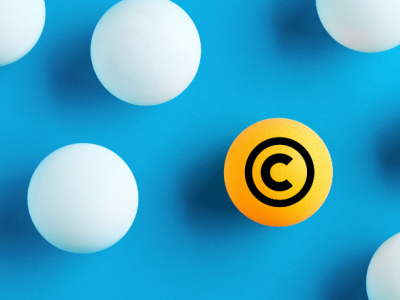When an employer directs an employee to create a work that would trigger copyright protection, who owns the copyright? What if an employer has engaged the services of an independent contractor, who creates the work for the business? Although employers may not run into this situation very often, it has the potential to create big problems if they aren’t aware of the contours of this doctrine.
Copyright Protection Applies to Creative Works
Our federal copyright laws protect all “original works of authorship, fixed in any tangible medium of expression,” which includes a wide variety of creative works, such as:
- Literary works;
- Musical works;
- Dramatic works;
- Works that are pictorial, graphic, and sculptural;
- Movies and other audiovisual works;
- Sound recordings; and
- Architecture.
Although copyright protection doesn’t extend to processes and methods of operation, it does extend to software, training materials, and advertising materials. So, some employers may be surprised to find out their employees are indeed creating copyrighted materials.
Bundle of Exclusive Rights
The Copyright Act provides the author of creative works with a bundle of exclusive rights, including the rights to reproduce the copyrighted work, to prepare derivative works, and—in the case of pictorial or graphic works—to display the copyrighted work publicly. Employers shouldn’t overlook these important, exclusive rights.
For example, employers may want to license their copyrighted materials to other businesses. But that raises an important question—who owns the copyright to works made for hire? What if the employee who created the copyrighted work doesn’t want the employer to use their work in a certain way or doesn’t want the employer to license their work?
Ownership of Creative Works Made for Hire
Generally, copyright ownership “vests initially in the author or authors of the work,” meaning the person who actually created the work generally owns the bundle of exclusive rights. The Copyright Act, however, carves out an important exception for “works made for hire.”
If the work is made for hire, “the employer or other person for whom the work was prepared is considered the author” and owns the copyright, unless there is a written agreement to the contrary. So, in the case of a work made for hire, copyright law deems the employer to be the author and grants to it the bundle of rights provided by our copyright laws.
Courts have taken an expansive view of what constitutes a “work made for hire,” presuming that any work created within the scope of employment or commissioned by independent contractors is a work made for hire. In general, the employer is presumed to own the copyrighted work when it was made at the employer’s “instance and expense,” meaning when the employer induces the creation of the work and provides the resources for its creation.
For example, if an employer directs an employee to come up with a new advertising campaign or create new training materials, the employer is presumed to own the copyright to those materials. So, the infectious “Give Me a Break” jingle written by Ken Shuldman in 1986 is owned by Nestle (owner of Kit Kat) and not by Shuldman. Conversely, if an assembly-line factory worker writes a Broadway musical in his free time after work, the employer can’t claim ownership of that musical.
Bottom Line
You should be aware that when a creative work is made for hire, the Copyright Act automatically vests copyright in employers, not the particular employees who created the work. In other words, the work belongs to you from the moment it is created, and you’re free to license those works as you sees fit.
You should also be aware that copyright protection may extend to a variety of works created by your employees, and you may consider whether the market would make licensing those works (e.g., advertising visuals, training materials, software) advantageous.
Paul M. Matenaer is an attorney with Axley Brynelson, LLP, in Madison, Wisconsin. He can be reached at pmatenaer@axley.com.

